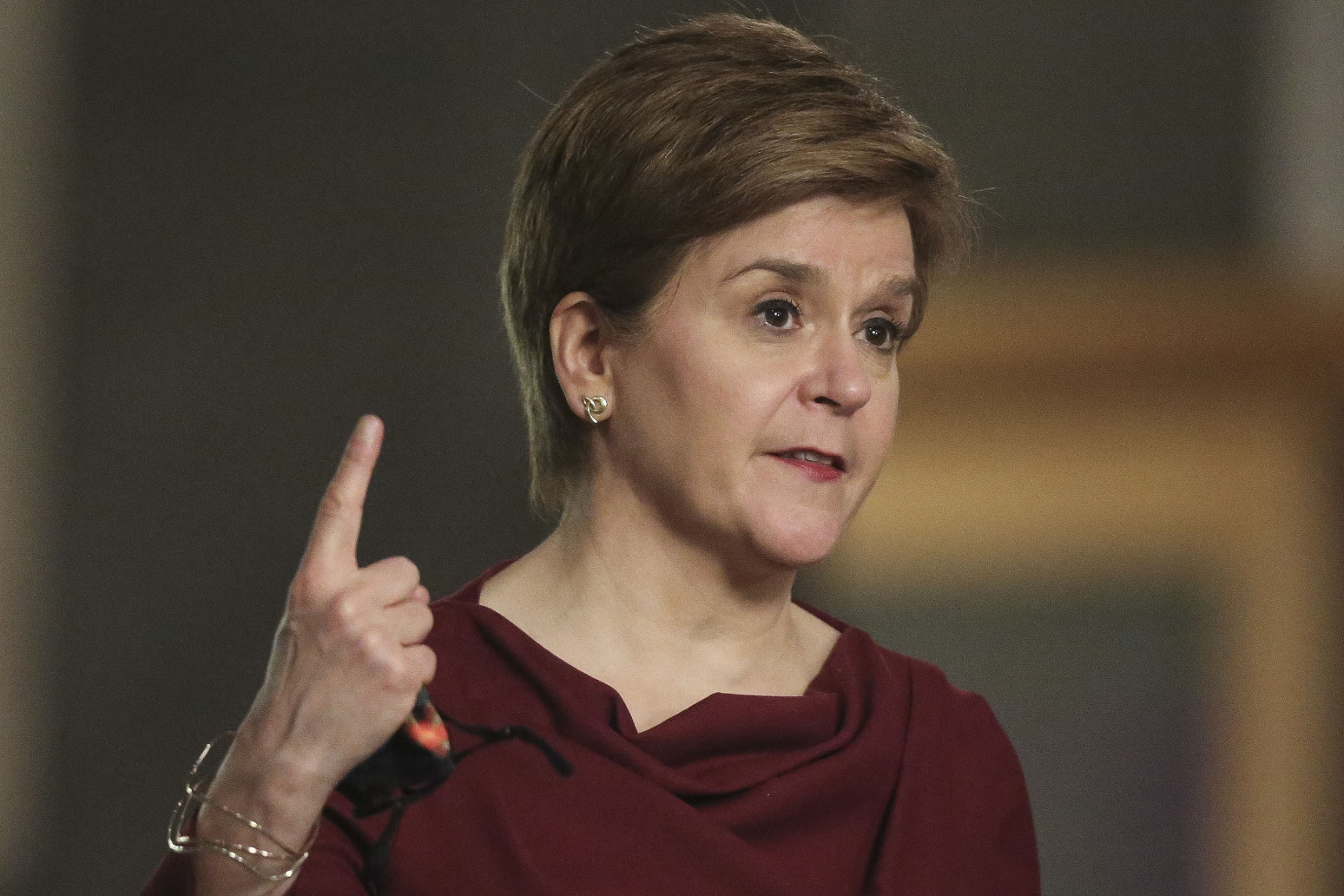
First Minister to update Scotland on Covid rules as Omicron cases remain high
Nicola Sturgeon will address Holyrood this afternoon
Nicola Sturgeon is set to update the nation on coronavirus rules as cases remain high across the country.
The First Minister will address MSPs in the Scottish Parliament on any potential new restrictions that could be implemented due to fears over the new Omicron variant.
She is due to make her statement at about 2.20pm.
The Daily Record said it understands Ms Sturgeon is considering new restrictions on football matches in a bid to halt the spread of Omicron.
The First Minister has previously suggested there will be no changes to Covid measures in Scotland before Christmas.
In a statement on Sunday, Ms Sturgeon said she will set out in Parliament if there are any “additional or wider steps necessary”, adding: “But I want to be clear to individuals that the advice I gave out last week is the advice that will take us through Christmas.”
She added: “My clear message to individuals is to reiterate the message I gave last week and that is, in the run-up to Christmas, please reduce your contacts, stay at home as much as is feasible right now.
“For Christmas Day and Boxing Day, we’re not asking people to cancel plans but think about keeping them as small as your family circumstances allow and make sure everyone is testing before going, and following rules around hygiene and ventilation.
“Then, after Christmas, for a period, limit your contacts again, so we can suppress infection as much as we possibly can, as we speed up the vaccination programme.”
Speaking on Good Morning Scotland on Tuesday, shadow secretary of state for Scotland Ian Murray said more restrictions in the UK are “inevitable”.
“The whole world at this moment in time is bringing in more restrictions,” he said, “so there’s an inevitability that restrictions will creep in”.
Asked whether he thinks other nations should follow the Welsh Labour government’s decision to ban spectators at sporting events from Boxing Day, the MP for Edinburgh South did not give a clear answer.
He said: “At this stage, we just need to look at the science and whether or not that’s where we need to go to.”
Mr Murray said one of the biggest concerns about the spread of Omicron is the impact it is having on services.
“People being off work with Covid because of the spike in numbers means that services are closing down, it means that hospitals are under pressure with staff, it means that pubs and restaurants and other places can’t staff what they need to do,” he said.
“Yes, it’s about hospital admissions, but it’s also about whether or not our services can survive so many people being off, ill and isolating.”
He added: “Hospitalisations don’t seem to be of the same trajectory as they would be with the Delta variant or otherwise, but the more people being infected have to stay at home and the more people having to stay at home the more risk that is to services.”
In England, there continues to be uncertainty over Covid restrictions after the Cabinet failed to reach a decision on Monday, though Prime Minister Boris Johnson said the Government will “reserve the possibility” of implementing new restrictions.
England currently has the most relaxed rules in the UK, but a recent vote in Parliament saw some measures introduced, including Covid passes for entry into nightclubs and other venues as of December 15.
Face coverings have also been made compulsory in most indoor public settings, as well as on public transport, and people have been told to work from home if they can.
In Wales, sporting events will be played behind closed doors from December 26 to help control the spread of Omicron.
First Minister Mark Drakeford previously announced a mixture of advice for the Christmas period alongside new regulations to follow as part of a “two-phase plan”.
Nightclubs will be closed from December 27 under the new rules, although the Welsh Government has announced a £60 million fund to support any businesses affected by the restrictions.
From the same date, two-metre social distancing will be mandatory in offices, and measures including one-way systems and physical barriers will be introduced in businesses to protect customers and staff.
The Scottish Government recorded 6,734 new coronavirus cases in 24 hours on Monday – the highest number of cases recorded in one day since September.
The country also recorded its highest test positivity rate since January this year.
In Monday’s figures, the test positivity rate stood at 15.2%, up from 13.9% on Sunday.
Published: by Radio NewsHub